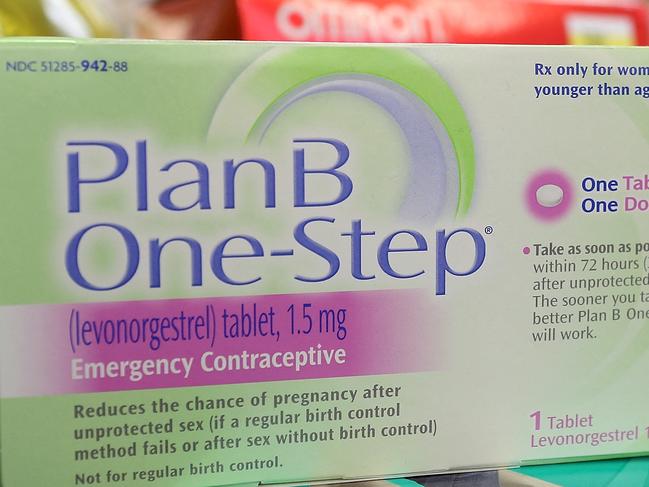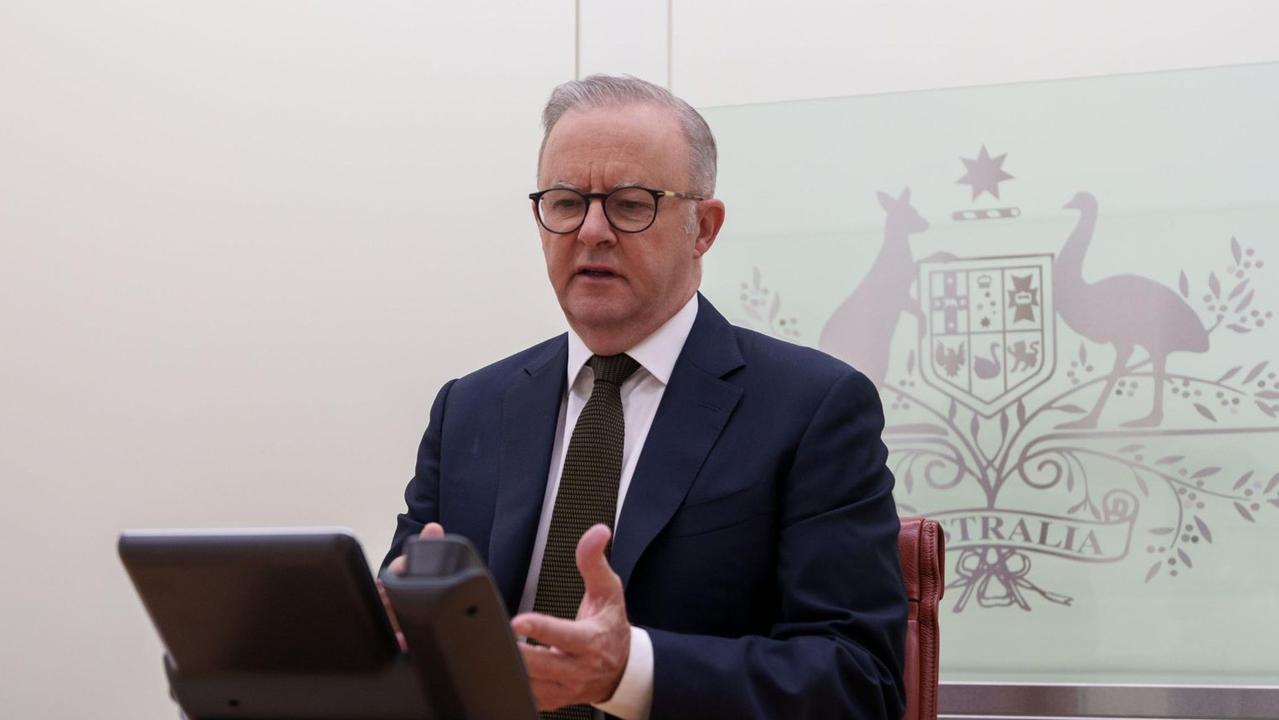Vicki Campion: Something is very sick in the rural GP system
Yes, country people deserve more: More GPs. Fewer three-hour trips to a doctor to renew a prescription and no scare campaigns about why pharmacists can’t ease the load. But try telling that to the AMA, writes Vikki Campion.

Opinion
Don't miss out on the headlines from Opinion. Followed categories will be added to My News.
Pets and livestock have better access to health care than people in parts of Australia with more vets than doctors, yet this week a move to correct that has become subject to a self-serving scare campaign.
The Australian Medical Association, which recently has fought against the telehealth boom, especially private doctors consulting without Medicare tax dollars, has launched a new assault on community pharmacists willing to return to university to sign contraceptive script repeats and antidotes for earaches, with its “You deserve more” campaign.
For regional mums, a simple script repeat appointment for the pill involves a round-trip of three hours to the doctor.
She knows exactly what script she will get, and she walks out 15 minutes later with a piece of paper and a bill for $100. She does this up to four times a year.
It is a perfunctory exercise. We don’t go to the mechanic to start the car — only for a service or when something is wrong.

We do “deserve more” — more doctors in regional towns save the heroic few who practice into their 70s, putting off retirement as a patriotic community duty.
There are at least 332 towns that have no GP but do have a community pharmacist, while hundreds of regional communities can support multiple veterinarians yet cannot attract a single doctor’s office.
The AMA is partially to blame for this by allowing family medical clinics to be corporatised, a concept banned before the 1990s, which, like the supermarket duopoly did to local butchers, has helped the demise of the family doctor.
Capital-city-owned corporate health companies shut down regional GP clinics and leave books of thousands of patients in regional areas to centres hours away.
One Brisbane-based company closed two regional medical centres at Pomona and the Mary Valley in five months without warning, adding to a NewsCorp list of nearly 60 clinic closures in three years.
Yet when alternatives to alleviate the health crisis in regional areas are proposed, from telehealth to expanding the scope of practice for chemists, the AMA fights it — setting sights this week on a mission to continue to force women who want access to basics such as contraception to go to the doctor for a repeat script.

In a recent Senate submission about universal access to reproductive health, the AMA claimed that “all women and other pregnant people should have access to legal and safe abortion” but in the next breath, refused proposals “to allow pharmacists to prescribe and dispense hormonal contraception”.
Often termination is only required because women didn’t have access to contraception in the first place.
The AMA, in its many submissions to the federal government, has also campaigned on “mandatory reporting of all healthcare delivery organisations greenhouse gas emissions” as “fundamental” and argues that “benchmarking with existing measures of healthcare quality performance can help ensure that decarbonisation outcomes are patient-centred”.
The health sector’s best way to reduce emissions, if that’s what the AMA is worried about, is saving a woman from a three-hour car trip to get a repeat for the pill.
Rather than the AMA worrying about “decarbonisation”, maybe it should focus on allowing other highly-skilled, intelligent, licensed people to be in the health army in places where doctors choose not to practice.
INFLEXIBLE AMA
A three-hour trip is a godsend in western districts, where women need a day to get to the doctor and back but can get to a pharmacy in their town.
How can the AMA campaign that “all women and other pregnant people should have access to legal and safe abortion and counselling services” and then refuse easy access to drugs that prevent pregnancy by either telehealth or pharmacy?
A community pharmacist can give out a morning-after pill over the counter to the same woman three times a fortnight but has no power to give her a more affordable script to take every day.
All for this notion that the AMA is worried about risks to patients getting advice from people “they are not familiar with”.
In regional areas where you are more likely to be seen by a random locum or doctor who has just got off a plane from another country, we are thrilled to have a consultation with someone we are unfamiliar with because the alternative is nobody.
While doctors can operate as many clinics as they wish from capital cities, pharmacies are limited to how many they can own, run and where they are.
This is not the AMA protecting women and “other pregnant people”. This is the AMA protecting their turf.
It recently claimed that the North Queensland Community Pharmacy Scope of Practice Pilot, in an area with 97 GP vacancies, which allowed pharmacists to give pill repeats, was a “dangerous experiment” that “missed an ectopic pregnancy”.
My experience with an ectopic pregnancy could not be diagnosed by a GP – rather an emergency ward and thousands of dollars of high-tech equipment.
Some credit must go to self-autonomy. When you present with crippling abdominal pain, you have made the first diagnosis yourself. If your first stop in agony is the chemist, and they recommend a lie-down, you will be fast looking for a second opinion.
The AMA’s claim that community pharmacists being allowed to offer more services would “fragment patient care” shows how out of touch they are with regional communities because that care does not exist.
GPs are overburdened and overworked. Why wouldn’t they then be willing to delegate writing a script repeat of the pill to a highly-qualified, licensed professional? It won’t empty their waiting rooms but could relieve pressure.
No political party before an election chooses to fight with the AMA because people trust doctors more than politicians – but it has morphed into a grand licence of protectionism.
Big doctors and medicine, like the big renewables lobby, big mining, big law, big accountancy and their lobbyists, are frequent political fundraiser attendees for either self-advancement or self-preservation.
This year, Labor has more than tripled ticket costs for its post-budget dinner from $1200 to $5000 a head at a venue so exclusive it didn’t make it on the invitation.
The regional mum with a three-hour round trip to get a script for the pill won’t be paying $5000 a plate. She won’t be invited at all.
It will be those business forum members chumming up to cabinet ministers in the interest of self-preservation to keep the medical industry closed from competition, all in the name of “care continuity”.





